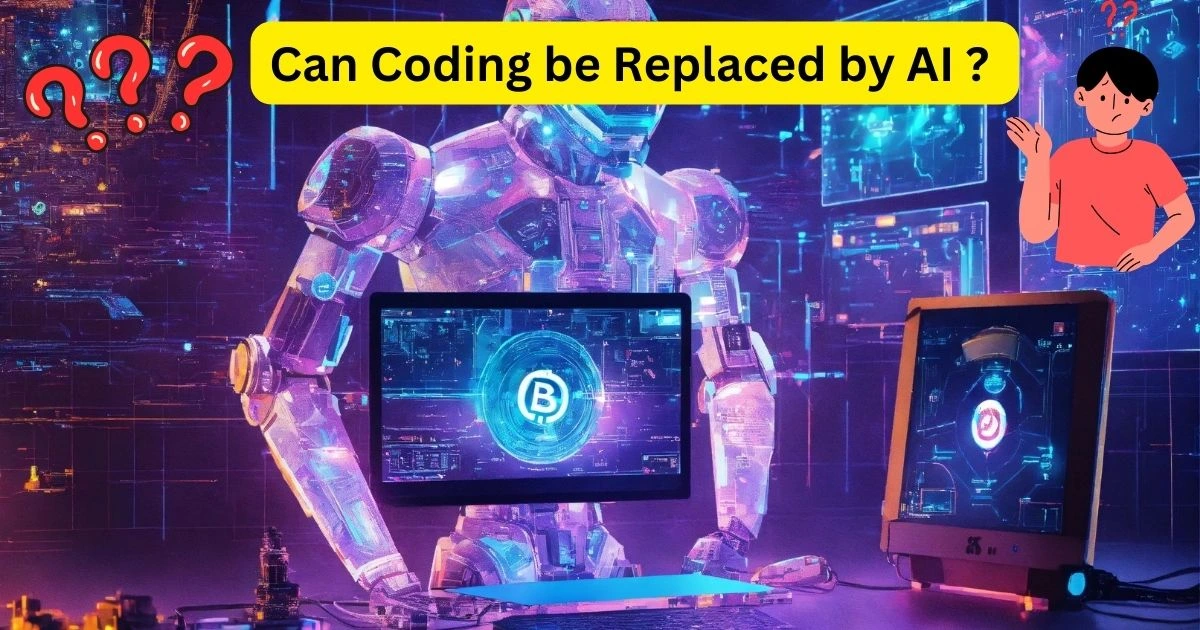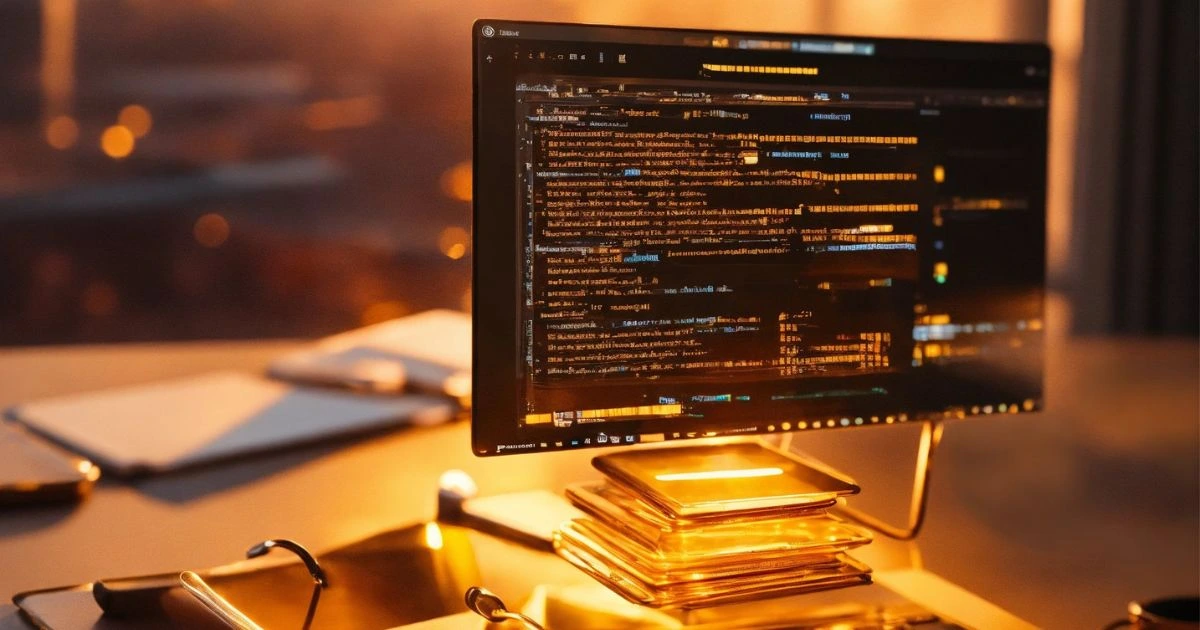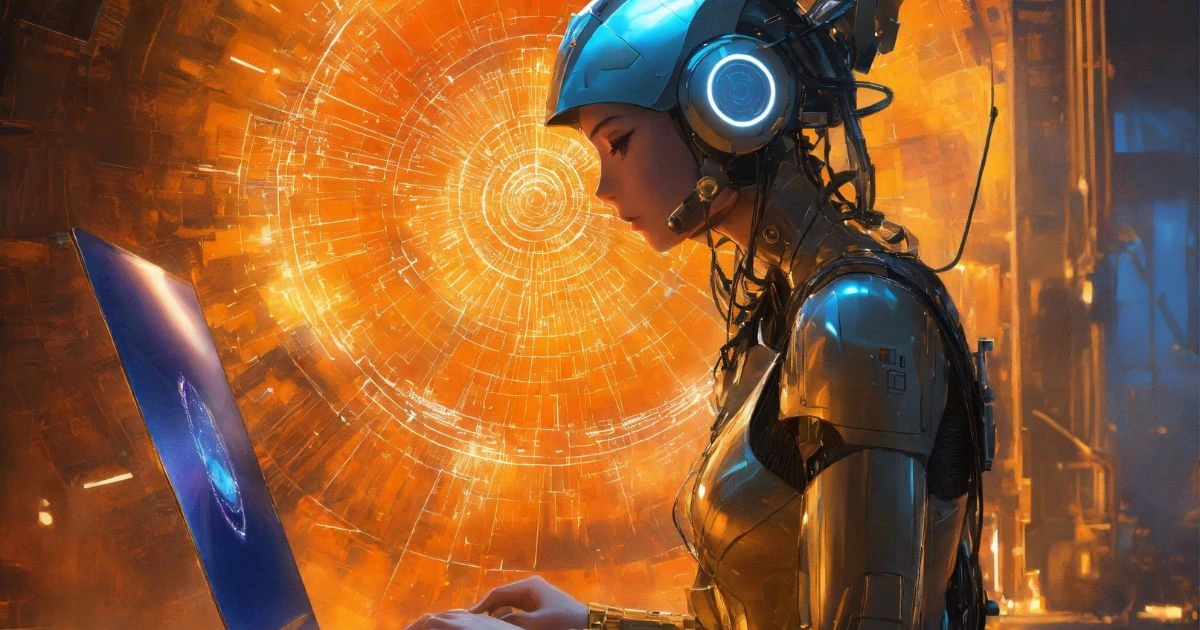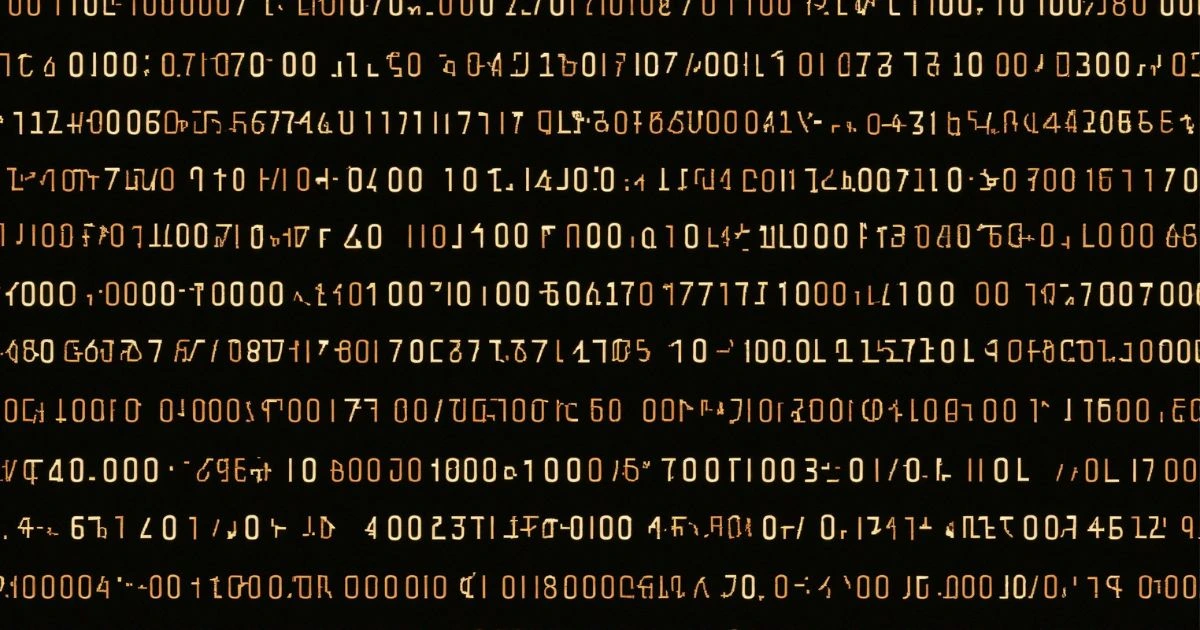Can Coding be Replaced by AI? Exploring the Future of Programming

In recent years, artificial intelligence (AI) has made significant strides in various fields, revolutionizing industries and reshaping the way we work. As AI continues to advance, there has been speculation about whether it could eventually replace the need for human programmers altogether. This begs the question: Can coding be replaced by AI?
While AI has undoubtedly made inroads into automating certain aspects of coding, the notion of completely replacing human programmers with AI remains a topic of debate among experts.
To delve deeper into this question, let’s explore the capabilities of AI in programming, the current state of AI-driven coding tools, and the potential implications for the future of software development.
The Rise of AI in Programming
AI has already demonstrated remarkable capabilities in various programming-related tasks, ranging from code generation and debugging to software testing and optimization. Machine learning algorithms can analyze vast amounts of code and data to identify patterns, predict potential errors, and even generate code snippets autonomously.
One area where AI has shown particular promise is in the realm of automated code generation. Platforms like GitHub’s Copilot and OpenAI’s Codex leverage large repositories of code to provide developers with intelligent code suggestions and auto-completion features.
These AI-powered tools can assist programmers in writing code more efficiently and accurately, significantly reducing the time and effort required for software development.
Challenges and Limitations
Despite the advancements in AI-driven coding tools, there are several challenges and limitations that need to be addressed before AI can fully replace human programmers. One of the primary concerns is the lack of creativity and critical thinking capabilities in current AI models. While AI can generate code based on existing patterns and examples, it may struggle to innovate or come up with novel solutions to complex problems.
Furthermore, AI-generated code may lack the nuance and context that human programmers bring to their work. Programming often involves understanding the specific requirements of a project, considering user needs, and making judgment calls based on experience and expertise – aspects that AI may struggle to replicate accurately.

Another challenge is the potential for biases and errors in AI-generated code. Machine learning models are trained on historical data, which may contain biases or inaccuracies that can be perpetuated in the generated code. Additionally, AI algorithms are not immune to bugs or glitches, and relying solely on AI for coding tasks could introduce new sources of errors into software systems.
The Future of Programming
While AI holds great promise for enhancing and streamlining the coding process, it is unlikely to completely replace human programmers in the foreseeable future. Instead, the relationship between AI and human programmers is likely to evolve into a symbiotic partnership, where AI tools augment human creativity and problem-solving abilities.
In this future scenario, AI-powered coding assistants will continue to assist developers by automating routine tasks, offering intelligent suggestions, and accelerating the development process. Human programmers, meanwhile, will focus on higher-level tasks such as designing algorithms, architecting systems, and integrating AI solutions into software applications.
Furthermore, the rise of AI in programming may lead to shifts in the skill sets and roles required in the software development industry. Developers may need to adapt to working alongside AI tools, learning how to leverage them effectively while maintaining oversight and quality control over the code they produce.
The Future of Coding with AI: Revolutionizing Software Development

As artificial intelligence (AI) progresses, it’s set to revolutionize coding and software development in significant ways. With increasingly sophisticated AI-driven tools, the future of coding promises innovation, efficiency, and enhanced creativity.
AI’s Impact on Automation:
AI-powered tools excel at automating repetitive coding tasks like generating boilerplate code, debugging, and optimizing code. This automation not only saves developers time but also allows them to focus on more complex and strategic tasks.
Assistance in Writing Code:
AI can aid developers in writing cleaner and more efficient code by offering intelligent suggestions and auto-completion features. Platforms such as GitHub’s Copilot and OpenAI’s Codex leverage machine learning to analyze vast code repositories and generate relevant code snippets, speeding up development.
Enhancing Software Quality:
AI has the potential to improve software quality by conducting advanced testing and debugging. AI algorithms analyze code for errors, vulnerabilities, and performance issues, enabling developers to identify and resolve problems more efficiently.
User-Friendly Interaction:
AI-driven technologies like natural language processing (NLP) enable developers to interact with code in more intuitive ways. Voice-activated coding assistants and chatbots offer instant support and guidance, making coding more accessible to users.
Collaboration between Humans and Machines:
The future of coding involves collaborative efforts between humans and machines. While AI can handle routine tasks and provide assistance, human programmers bring creativity, critical thinking, and domain expertise to the development process. By combining AI’s capabilities with human skills, software development teams can achieve greater productivity and innovation.

In conclusion, the future of coding with AI promises to transform software development, making it faster, more efficient, and more accessible. As AI technologies evolve, developers must embrace these opportunities and adapt their skills to leverage AI’s full potential in shaping the future of coding.
Conclusion
In conclusion, while AI has the potential to revolutionize the field of programming, it is unlikely to replace human programmers entirely. Instead, AI will complement and augment human capabilities, leading to more efficient and innovative software development processes.
By embracing the opportunities presented by AI-powered coding tools while addressing their limitations and challenges, the future of programming holds exciting possibilities for both AI and human programmers alike.
Also Read – Sustainable Aviation Fuel : Secret Fuel Hacks Airlines Don’t Want You to Know About
Also Read – Debt Ceiling Drama: A Tightrope Walk With America’s Financial Future
FAQ: Can Coding be Replaced by AI? Exploring the Future of Programming:
1. Can AI completely replace human programmers?
- While AI has advanced in automating certain coding tasks, complete replacement of human programmers remains unlikely due to limitations in creativity, context understanding, and potential biases in AI-generated code.
2. What are some challenges in AI-driven coding?
- Challenges include lack of creativity in AI models, potential biases in AI-generated code, and the need for human judgment in complex programming tasks.
3. How will AI impact the future of programming?
- AI is likely to augment human programmers, streamlining routine tasks and accelerating development processes while humans focus on higher-level tasks such as system architecture and algorithm design.
4. What skills will programmers need in an AI-driven future?
- Programmers may need to adapt to working alongside AI tools, learning how to leverage them effectively while maintaining quality control over the code they produce.
5. How can AI and human programmers work together effectively?
- By embracing the opportunities presented by AI-powered coding tools and addressing their limitations, AI and human programmers can collaborate to achieve more efficient and innovative software development processes.
Also Read – Most ICONIC Pepperoni Pizza in USA
Also Read – National Pizza Day : Pizza Lovers UNITE.

